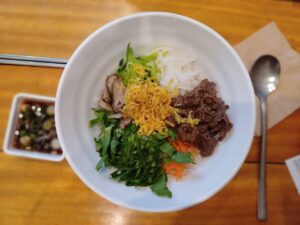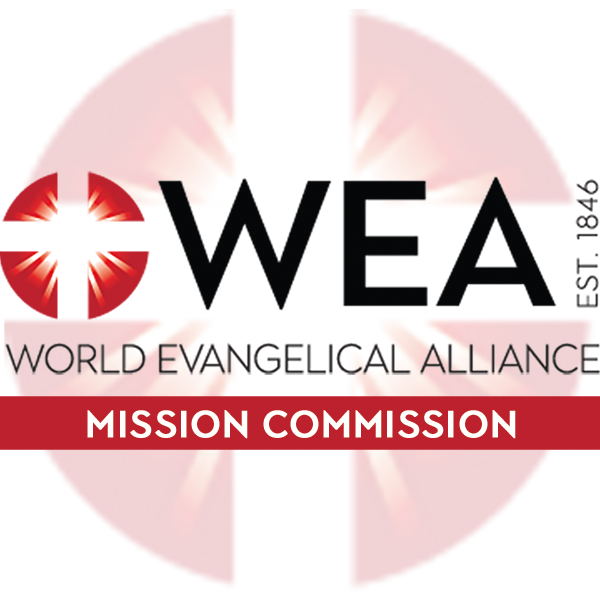REIMAGINING MISSIONS: REVIEWING L4
[30 Minute Read]
Dear fellow participants in God’s mission,
Grace and peace to you in the name of the Lord Jesus Christ.
PRELUDE
At the 2023 Mission Commission Global Consultation (GC23) we opened the event by inviting participants to consider it a “safe space” within which to share openly and to allow others to share freely. We encouraged participants to expect to feel uncomfortable at times as people with differing experiences, perspectives, and opinions added them into the mix from the front and around the discussion tables.
“If we don’t feel discomfort”, it was said, “we are probably assuming a position of power, not allowing alternative views to challenge prevailing assumptions”. At GC23 we wanted common assumptions about missions challenged so we could consider better ways to serve the purposes of God for the next era of missions ahead of us. We were embarking on a journey to reimagine missions.
Having established a baseline of safety for openness, we presented the metaphor of a kitchen. Rather than us inviting participants “to the table”, to receive a pre-prepared meal, we were inviting them into the kitchen, to cook up a fusion feast together. The origin of this metaphor arose from a conversation between Dr Todd Johnson (Center for the Study of Global Christianity) and Rev. Dr. Femi Adeleye (IFES/Langham Preaching) in 2010, where Rev. Dr. Femi suggested it was time Majority World leaders were invited into the kitchen. The Mission Commission has long been committed to doing just that.
Mission Commission Global Leadership Council Chair, Dr Ruth W. invited GC23 participants to bring their favourite ingredients into the GC23 ‘kitchen’ to add to the flavour of what would eventually emerge. She warned that some favoured food would not be to everyone’s taste, but rather than reject it, we were to allow it to influence the whole. Durian, balut, vegemite, fufu, yak butter, cow’s blood, abalone, tsampa, fermented corn, roasted insects, live octopus tentacles, whatever cultural delicacy we brought with us was worthy of the meal.
While the GC23 kitchen produced a feast of ideas to nurture us at the event, we were under no illusions that what was created would last in its entirety beyond the event. The memory of its creation would. We hoped the taste would linger, encouraging similar fusion opportunities. But what we would carry back home with us were ‘holy calories’, morsels consumed around the table, giving us energy for our continuing work in our local contexts. We did not expect to preserve the meal for consumption elsewhere. We attempted to capture what was created at the time, for posterity, but each participant would take away something different from the feast—something that was relevant for them and their worlds. We did not presume to develop concepts that could be universally applied.
Although he was not at GC23, the leader of the World Evangelical Alliance Theological Commission, Rei Lemuel Crizaldo has drawn on a similar meal motif regarding his experience at the Fourth Lausanne Congress on World Evangelisation (L4). He has given us permission to reproduce his reflection below with some light editing.
“Bibimbap Missiology” is perhaps that closest pair of words I can think of to describe what just happened at the 4th Congress of the Lausanne Movement in Incheon, South Korea (22-27 September 2024). Bibimbap is a Korean rice bowl with mixed ingredients. The congress in itself could be seen as a type of bibimbap with its mix of views that lay behind and influence many tensions that exist in the evangelical community today.
Clashes were no more evident than in ‘the speech that shook L4’ delivered by Dr Ruth Padilla DeBorst from Latin America (a play on the words attributed to her father René Padilla’s speech at Lausanne 1974 nicknamed, “the speech that shook the world”).
But for those looking beyond the veneer of what was seen on stage, a critical aspect that requires attention is the tension arising from the push and pull of missiological perspectives always present at a Lausanne Congress. The theme of the congress itself embraced it: “Let the church declare and display Christ together.” Three large tarpaulins were put up, one emphasizing the word ‘declare’, the other ‘display,’ and the third one ‘together.’ Another outside the auditorium even placed a hyphen separating “declare” from “and display”, presumably to try and prioritise proclamation. Immediately, I thought, these visuals reveal where the movement is at in 2024:
- Within Lausanne, there are those who wished to see declaration emphasized more so that evangelical churches would not lose their fervour for evangelism, which distinguishes evangelicalism from the more socially active missions trajectory of the World Council of Churches (WCC). These are likely people who remember that the first Lausanne in 1974 was held in reaction to waning evangelistic energy and calls for a moratorium on missionary sending within ecumenical circles. The proponents of proclamation prioritisation also promote ‘finish the task’, classify ‘unreached people groups’, and develop specific ‘strategies’ with the aim of fulfilling Jesus’ command to evangelise the world in anticipation of ‘hastening’ His return. They view Lausanne as the platform to achieve this—with this focus seen as the core strength of what Lausanne is and their hopes for what the movement will continue to be. While some of them also believe that the gospel has to be ‘holistic’, in a practical and even a theological sense, ‘priority’ remains on finding ways of ‘telling the gospel’ clearly and effectively (this is also known as ‘prioritism’). Ed Stetzer, regional director of Lausanne in North America, has already written a post-conference reflection that articulates exactly this conviction.
- But also within Lausanne are those who hope to see demonstration finally get the legitimisation it deserves as a missional expression of what it means to be a witness to the gospel. They come in many names, wearing different hats—they are faith-based development agencies, justice initiatives, social workers, community organizers, climate activists, even business developers, among many others, who work to ensure that more people will experience the “fullness of life” in the here and now. In addition to, of course, finding assurance of eternal life in the world to come. They are the people who remember the first Lausanne Congress in 1974 as the struggle of Majority World voices in disrupting the narrow and truncated model of mission that developed in the West, or to recall a phrase that René Padilla used in his speech, the need for a more “integral” mission as an antidote to the dominance of “a gospel with no teeth.” A younger leader from Sri Lanka, Nathanael Somanathan, member of Lausanne’s current Theology Working Group, wrote a penetrating post-congress analysis that articulates this perspective.
- 50 years later, the tension between these two missiological camps remains, and the L4 congress was an opportunity to discover how to share the same space, to be brothers and sisters, to talk with each other, and find ways to move forward together. The big push for togetherness at L4 was framed around the call for ‘COLLABORATION’. Lausanne CEO Michael Oh called attention to this in his opening address, where he encouraged us to remember that “I need you” (presumably one another, but at times it seemed he was also encouraging us to need Lausanne). The sessions and activities of the week-long event were designed around the objective of togetherness (subtext: ultimately to be brought within the ecosystem of Lausanne’s digital platform). The many tensions that transpired behind the scenes throughout the week were but indicators of how the movement is grappling with what happens when you ask advocates of justice & peace to share the same stage with heralds of justification & church planting.
Where the congress fell short
Bibimbap could have been a good metaphor for the congress, capturing the changing landscape of today’s Christianity, which is becoming more and more global. But to my mind it turned out to be a missed opportunity. The bibimbap rice bowl is only as good as the choice of side dishes one uses to mix in, and how well everything is tossed inside the bowl. It cannot be truly enjoyed by eating the rice alone and then each of the side dishes separately as one would normally do with, say, a Filipino viand meal with a side of rice.
The congress seemed to attempt put an overwhelming variety of different elements together and toss them in a single bowl, with the hopes of arriving at a dish that will be good for everyone, everywhere, and perhaps, for all time. But in doing so, the authenticity of a bibimbap was lost. The participants were told of the intention to resolve tensions and manage fractures. We were encouraged to find happy resolutions… together. Maybe the three tarpaulins were illustrative of a desire that everyone would find their own happy space—under the big tent of Lausanne.
From my survey of participants, however, disappointment was mutually felt by representatives of each view. The ‘declare’ camp remains worried that the Seoul Statement has not gone far enough to ensure that evangelizing the lost, the last, and the least. They lament that, while not the only task of God’s people, proclamation evangelisation should have been confirmed as a priortity, but it wasn’t. The ‘display’ camp, on the other hand, were frustrated that not much space was given to articulate the cause of justice, peace, and reconciliation. Furthermore, at one of the very few times it was forcefully articulated on stage, the L4 organizers were influenced to issue a public apology, which then upset another group at the event.
The problem with a global missiology
The discontent experienced by both sides of the declare/display issue during the L4 is very much rooted in an imaginary that remains a sticky feature within evangelicalism—the yearning for a singular story that can define and unite the complex movement. In the field of missiology, the three previous Lausanne documents can be viewed as building upon each other in the hope of eventually arriving at a universal and more biblical missiology, one that would be good for everyone, everywhere, and hopefully, for a really long, if not, all, time. It has been the pursuit of a truly ‘global’ missiology for today’s global church.
I am convinced that such an endeavor will only end up frustrating us all and be less than helpful. As Christianity re/emerges more and more in different parts of the world, with distinct perspectives, it is becoming clear that the challenge of finding a globally unifying missions perspective has little to do with who is in the room for the discussion. The challenge requires coming to terms with the fact that each locality, each community, each region of the world, faces a context, culture, and church histories that will demand different approaches to doing missions which can only be articulated from within their contexts. We can conceptualise and strategise only so far. Universal applications will inevitably fall short.
Which brings to mind the problem with how ‘contextualisation’ has been thought of lately, especially in missions, wherein the approach has morphed into taking something supposedly ‘global’ and then making it ‘local’ so that it becomes more palatable or relevant. Basically, the equivalent of subtly universalizing bibimbap in other cities of the world by turning it into bibimbap burgers or bibimbap tacos.
On the contrary, I think we need to recognise that there is rarely anything that is truly ‘global’. What does transpire as ‘universal’ and is transplanted transculturally is, in effect, a type of colonisation. What usually gets promoted from events like L4 are ideas of the foreign powerful imposed upon the locals. Bibimbap is a beloved Korean dish and best enjoyed in the Korean way of eating, and for the L4 delegates we had an opportunity to enjoy it right where the dish originated—in Korea. But to think of creating some sort of global bibimbap that serves as a dish for everyone, everywhere, and for all time, is a big mistake. It will cease to be a bibimbap.
Lately, I’ve been talking of how the theology of ‘integral mission’ has been less effective and became more contentious when it was ‘Lausannised’ (read: globalised!). It did not help that the Micah Declaration on Integral Mission was drafted in Oxford! More than a few from the Majority World have encountered integral mission through these sources and thought of it as just another ‘colonising’ Western framework seeking embrace from their people. They have missed the fact that the Spanish word ‘integral’ that was coopted for Integral Mission is not from the English word ‘integrate’ (fuse things together) but from what makes ‘pan integral’ (whole wheat bread), a more healthy choice of bread in the tables of South America. It does not help that even celebrated advocates of Integral Mission also omit the genealogy, the historical roots of the concept, in the hope that a more abstracted version might be more helpful. All in all, this proved to have the unfortunate effect of missing Padilla’s original point.
Confronting colonial missiology
What Rene Padilla, Samuel Escobar, Kwame Bediako, John Stott, among others, accomplished, together, in 1974 was to remind the evangelicals molded in the tradition, history, and context of the Western hemisphere that the Western approach to doing missions does not (and cannot) apply to everyone else in the world. The other regions of the world, today called the “Majority World”, are facing battles of their own with regard to how the gospel takes root in the hearts and minds of their people, amidst the social and political issues of their communities. It is naive to think that there is a singular way to address these multifaceted dimensions of mission and ministry across the world.
Correctly understood, misión integral was a sharp critique, a necessary pushback, and a concrete alternative that emerged from within Latin America countering what the West offered. It represented a moment in evangelical missiology that had the power to encourage the people of God in Africa, Asia, Oceania, and other regions of the Majority World to reimagine missions anew, and that by doing so we were not being ‘heretical’ but instead truly ‘missional.’ It had the power to confront and undo the ‘colonial captivity’ that not a few in the Majority World continue to suffer from in subtle and hidden ways. This is the ‘decolonial’ edge of Integral Mission that got blunted when it was ‘globalised’ in the shape of the remaining colonial mold of Western missiology. Drawing on its wholemeal bread motif, pan integral missiology could have launched a thousand dishes of missional expression: adobo missions in the Philippines, phin missions in Vietnam, khao soi missions in Thailand, etc. It is not enough to just be contextual, one also needs to be ‘de-colonial’—basically an insistent conviction to root one’s way of thinking from where one’s feet land and stand. Indigenous missions.
Finding a way forward
And so the struggle has to move beyond, and away from, whether integral mission or prioritism will win as the ‘official’ evangelical missiology. Such a question can easily lead us down a path of colonial preoccupations disguised in the language of which one is more ‘biblical’. The real work is how the different spaces and communities of evangelicals in different parts of the world can encourage one another to plant the seeds of the gospel in their localities, sharpen each other’s perspectives and practices by exchanging notes, and celebrate the fact that it is within these diverse expressions and articulations of missions that the true strength and uniqueness of ‘the Church’ spreading worldwide can be found, a Church that Christ alone continues to grow and lead.
Among indigenous or highly localised expressions of missions is also where a platform like the Lausanne Movement can best position itself in service—not as a missiological policeman or traffic controller, but as gospel caterers. That is, a gastronomic platform that will go beyond extending and making the ‘global’ table longer, but interrogating the very idea of having a single table! Instead inviting everyone to ask how things could be different if we were to celebrate the existence of more and many tables, encouraging people to stand-up, explore, and savour what other tables have to offer, not necessarily to copy one another but to be challenged to further deepen each other’s work.
I have some ideas on what could happen if we switched from attempting to create a globalised-bibimbap to encouraging a missional metaphor based on single-origin coffee, but that will have to wait for a future post on my Tumblr account.
Pray
- That all the participants at Lausanne 4 will continue to reflect on their experience of the event (whether in person or online) towards helping them make a positive impact in their contexts from what they learned from the experience.
- For the ‘thought leaders’ of global missions and evangelism as a radically new global context tests previous assumptions about how we participate in God’s purposes around the world. Let us all keep in step with the Spirit.
- For inspiration to know how best to ‘localise’ our ministry in and gospel witness to the broken and hurting society around us. Let us not hesitate to “live out loud” our faith in Jesus, always ready to give a reason for the way we live and the blessings we bring.
- For the thousands of volunteers and creators of the Lausanne 4 experience, that they would be well supported by friends and family as they recover from their wonderful contributions. May the Lord bless them for their investment, confirming that their labour was not in vain.
- For wisdom for the Lausanne leaders as they debrief the experience and consider how to best move forward from here. Dreams for the future of Lausanne and plans made prior to L4 may (or may not) need adapting after the event. Pray for governance courage to interrogate assumptions and operational humility to review commitments so that the Lausanne Movement may continue to be an appropriate blessing to the global Evangelical community.







